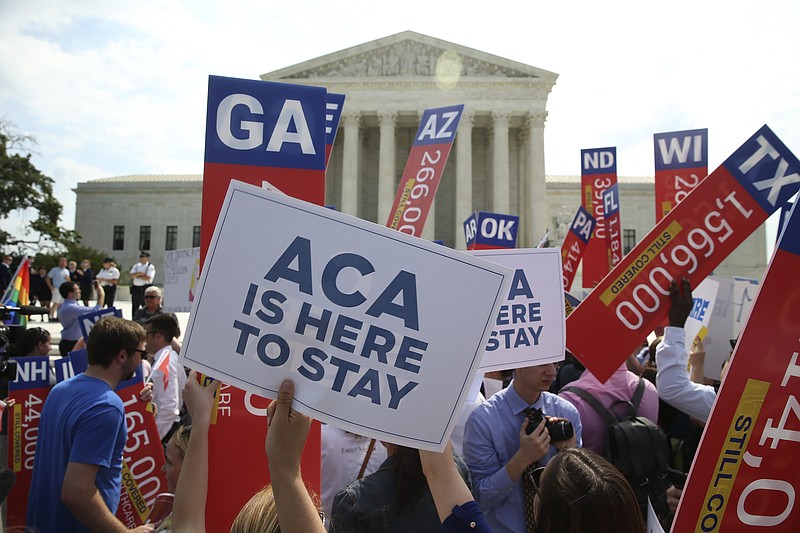The Affordable Care Act (aka Romneycare, Obamacare and perhaps SCOTUScare) is here to stay.
Millions of Americans (and even some Republicans politicians without an alternative for the "Obamacare" they've derided for five years) breathed a great sigh of relief Thursday when the U.S. Supreme Court ruled 6-3 for the government in the King v. Burwell case.
The ruling upholds the ACA-authorized federal tax credits to help eligible Americans buy health insurance even if they live in the 34 Republican-controlled states - like Tennessee, Georgia and Alabama - that did not set up their own heath care market exchanges but instead opted out and required their eligible residents to shop for insurance on the federal exchanges.
President Barack Obama saw a centerpiece of his legacy affirmed, but more importantly about half of the 15 or 16 million people who gained health insurance under the law will not now suddenly lose that coverage. These are low-income, working people who make too much to be covered by Medicaid, the health care program for the poor.
"Five years ago, after nearly a century of talk, decades of trying, a year of bipartisan debate, we finally declared that in America, health care is not a privilege for a few but a right for all," Obama said after the ruling.
In the ruling, conservative Chief Justice John Roberts, who wrote the majority opinion, penned: "Congress passed the Affordable Care Act to improve health insurance markets, not to destroy them. If at all possible, we must interpret the Act in a way that is consistent with the former, and avoids the latter."
The filing of the lawsuit was one more blatant conservative attempt at obstructionism aimed at the law that the Obama administration patterned after the GOP's "Romneycare." In pointed partisan fashion, conservatives then fought the virtually identical program because they feared the success it would (and does) achieve under a Democratic president. The legal challenge hinged on one poorly written, four-word phrase that was at odds with the rest of the 900-page law.
A New York Times editorial aptly summed up the lawsuit as "an ideological farce dressed in a specious legal argument, and the court should never have taken review of it to begin with."
Fortunately, the result of that review is now a resounding and broad victory for the law - a law that already has dropped the country's number of uninsured people to the lowest level ever recorded. Health care prices and employer premiums have risen at lower rates than in years past and Americans can no longer be denied coverage because of pre-existing conditions. There are no more annual or lifetime limits on how much insurers have to pay for care. And, contrary to a Republican claim that Obamacare is a "job killer," the country has logged 63 straight months of private-sector job growth, starting the month the act was passed.
The Supreme Court got it right this time.
